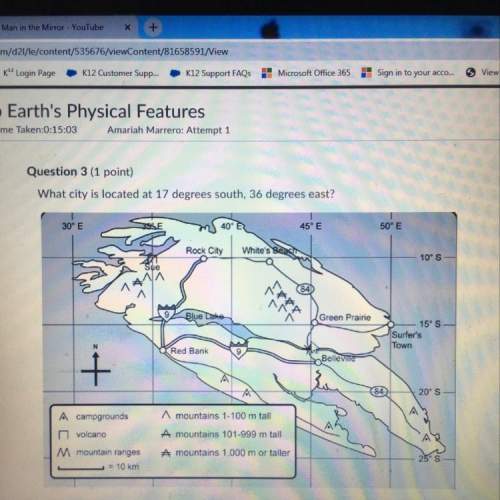
Chemistry, 30.04.2021 07:00 trying2passs
The half life for the radioactive decay of potassium-40 to argon-40 is 1.26 x 10^9 years.
Suppose nuclear chemical analysis shows that there is 0.367 mmol of argon-40 for every 1.000 mmol of potassium-40 in a certain sample of rock. Calculate the age of the rock.
Round your answer to 2 significant digits.

Answers: 3


Another question on Chemistry

Chemistry, 21.06.2019 17:30
Given that the molar mass of nano3 is 85.00 g/mol, what mass of nano3 is needed to make 4.50 l of a 1.50 m nano3solution? use .6.75 g18.9 g255 g574 g
Answers: 1

Chemistry, 21.06.2019 20:10
Starch and are common polysaccharide carbohydrates found in plants. sucrose glycogen fructose cellulose
Answers: 3

Chemistry, 22.06.2019 11:00
What is the temperature of 0.750 mol of a gas stored in a 6,850 ml cylinder at 2.21 atm? . 2.95 k 5.24 k 138 k 246 k
Answers: 3

Chemistry, 22.06.2019 16:00
Answer asap : ( a. how does mucus prevent the entry of pathogens? b. describe two ways white blood cells protect us from pathogens.
Answers: 1
You know the right answer?
The half life for the radioactive decay of potassium-40 to argon-40 is 1.26 x 10^9 years.
Suppose...
Questions


Mathematics, 23.09.2019 12:50

Biology, 23.09.2019 12:50



History, 23.09.2019 12:50


Social Studies, 23.09.2019 12:50

Biology, 23.09.2019 12:50


Biology, 23.09.2019 12:50




Mathematics, 23.09.2019 12:50

Mathematics, 23.09.2019 12:50



Health, 23.09.2019 12:50

Mathematics, 23.09.2019 12:50




